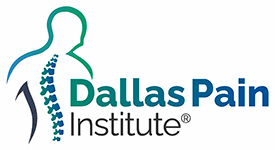Did you know May is Mental Health Awareness Month? According to NAMI, the National Alliance on Mental Illness, “Mental Health Awareness Month has been a cornerstone of addressing the challenges faced by millions of Americans living with mental health conditions.”
At Dallas Pain Institute, we know there are several factors that play into mental health that need to be addressed, including chronic pain. We see firsthand how chronic pain can take a toll on more than just the physical body—it can also have a major impact on your emotional and psychological well-being. But what exactly is the link between chronic pain and mental health? Let’s go over the steps you can take to manage both for a better quality of life.
The Chronic Pain and Mental Health Connection
Chronic pain is persistent pain that lingers and feels like it it never going away. When pain stays around longer than we can stand it, we can become versions of ourselves that we want to avoid as much as possible. Chronic pain can affect mental health in more ways than one:
- Emotional Stress: Living with chronic pain can take a toll on your emotions. Constant pain and the difficulty of doing everyday tasks can cause stress, anxiety, and depression.
- Trouble Sleeping: We’ve all experienced sleep problems every now and then, but pain can make going to sleep difficult every night. Poor sleep can create mood swings and irritability.
- Loneliness: Chronic pain can make it hard for you to be social and do things that you normally love participating in. This can lead to loneliness and feeling disconnected.
- Negative Thoughts: We all experience negative thoughts creeping in, but chronic pain can cause these thoughts to stick around and turn into depression and anxiety.
Managing Chronic Pain and Mental Health
Taking care of your mental health can be tough, but we hope these tips help you work toward feeling your best again:
- Seek Professional Help: Talk to a healthcare provider about your symptoms. At Dallas Pain Institute, our chronic pain doctors in Rowlett TX (pain clinics also in Sherman, Greenville & Forney, TX) will work with you to develop a treatment plan that addresses both pain and mental health custom to your specific needs.
- Practice Peace: Try out meditation, yoga, and deep breathing exercises to help you manage pain and reduce stress.
- Stay Active: Exercise can help improve your mood and reduce pain. According to the Mayo Clinic, physical activity may help bump up the production of your brain’s feel-good neurotransmitters, called endorphins. We could all use more of that!
- Connect with Others: Having a support system can make you feel more connected, even if it’s just making more time for friends and family each week. Try talking to a therapist or life coach to share your experiences and get advice.
- Prioritize Sleep: Good sleep hygiene can help you get better rest and improve your mood. Create a bedtime routine that relaxes you and keeps distractions to a minimum.
Pain Treatment Rowlett, TX
You don’t have to face chronic pain and mental health challenges alone. At Dallas Pain Institute, we are committed to helping you manage your pain and supporting your emotional well-being. If you or someone you know is struggling with chronic pain and its effects on mental health, reach out to us for a consultation today. We have convenient pain clinics throughout North Dallas in Sherman, Rowlett, Greenville & Forney, TX. We look forward to caring for you!
